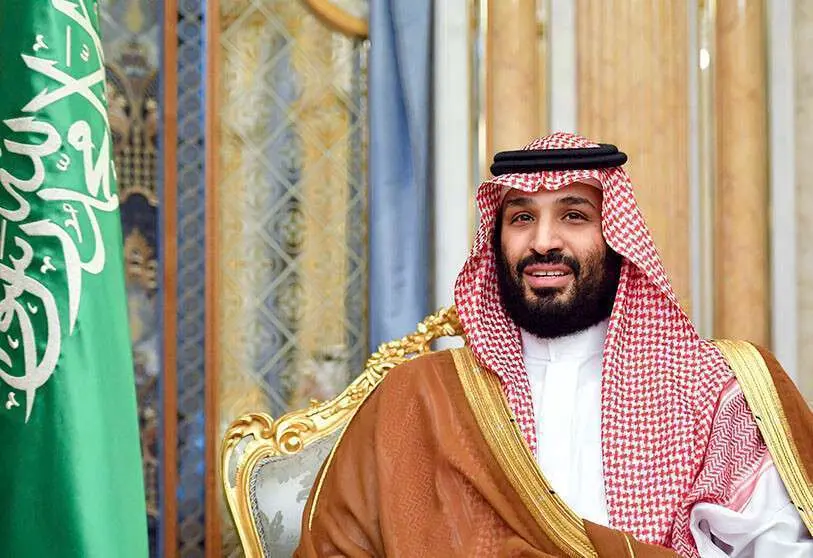The Gulf: the fights of the monarchs

It is a cold war in which all - or almost all - blows are allowed. Since 2017, what has been termed the Gulf crisis has continued to escalate and give rise to several episodes, such as the soap operas, their twists and turns made of economic boycotts and diplomatic pressure.
Over the past three years, entire villages have been taken hostage. Bin Salman's allies had expelled the Qatari from their countries. Others lost their jobs or had to leave their homes, repatriated to their countries of origin and expelled from their host countries.
Two clans clash, guided by the oil monarchies in charge. On the one hand, Qatar and Turkey, and on the other Saudi Arabia and its allies: the United Arab Emirates, Bahrain and Al-Sisi's Egypt, which considers Doha to be its biggest enemy, having been supported in the past by the Muslim Brotherhood and the overthrown president, Mohammed Morsi.
Riyadh, which accuses Qatar of supporting terrorism, has severed all diplomatic relations with its extremely rich neighbour. But in fact Iran is the apple of Qatar's eye and the sin of which it is guilty.
Doha's links with Tehran are systematically condemned and denounced. An alliance between the Sunni monarchy and the Shia republic is considered unnatural.
However, Qatar and Iran have every interest in maintaining good neighbourly relations, dictated by common interests. The offshore natural gas deposits shared by the two countries, which are a major financial gain, take precedence over the religious differences that have divided the Muslim world for several centuries.
The Sunni monarchy has been able to accommodate its Shia neighbour for the common good, which amounts to several million dollars. This greatly displeases Saudi Arabia, which accuses Doha of financing radical Iranian Islamist groups, accusations which Qatar has systematically rejected.
Doha has been isolated by a triple blockade: sea, land and air. But the prodromals of war were already there and date back to the Arab Spring, when the small and powerful Gulf monarchy played its role, particularly through its channel, Al-Jazeera, which supported Egypt's Muslim Brotherhood and has not ceased to attack the Saudi regime.
Erdogan flew to the rescue of Sheikh Tamim bin Hamad al-Thani and Ankara has reinforced its military base on Qatari soil in support of his friend and continues to cooperate with Qatar in the framework of the "High Level Strategic Committee between Turkey and Qatar".
Erdogan has always accused the Emirates of financing Putsch's attempt on his life in 2016 and the murder of the journalist Khashoggi at the Saudi embassy in Ankara only served to exacerbate tensions between the two blocs.
These disputes between monarchs irritate Washington and especially the Trump Administration, a faithful friend of the Saudi camp.
But the small monarchy of Qatar also weighs heavily on Uncle Sam's policy. The most important American base in the Gulf is in Al-Udeid, among the Qataris, where some 10,000 American soldiers are stationed.
The United States has a personal interest in gathering its troops in the Middle East and the conflict, which has gone on for too long, is bogging down several countries in the economic recession and is affecting Washington's interests.
In this mess, Oman and Kuwait have played a moderating and intermediary role since the beginning of the crisis. The emissaries of both countries have continued to temper the zeal of some and the warlike moods of others.
Is the new attempt at reconciliation now under way the right one?
A week ago, Kuwait's foreign minister, Sheikh Ahmed Nasser al-Mohamed al-Sabbah, was optimistic: "Fruitful discussions took place in which all parties affirmed their commitment to the solidarity and stability of the Gulf and Arab countries, and to the conclusion of a final agreement that would achieve the permanent solidarity to which their countries aspire".
The American stamp is obviously behind this declaration. Furthermore, Donald Trump welcomed him and Mike Pompeo, his secretary of state, hastened to declare that the United States hopes that "the differences between the Saudis and the Qatars can be resolved (...) We continue to do what we can to facilitate conversation and dialogue and look forward to doing so", he insisted.
Could this diplomatic rhetoric bring the long-awaited peace? The days ahead will tell us, though the rivalries between the Gulf monarchs persist, so deep are the divisions and fractions.

